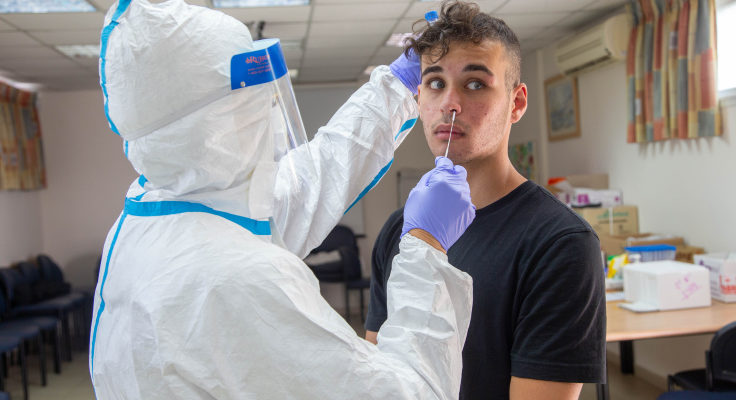Health Ministry officials also demanded limits on beaches and parks as well as other restrictions.
By David Isaac, World Israel News
Israel’s Corona Cabinet met on Monday to discuss further tightening of health guidelines as the deadly pandemic has returned in a country that prided itself for its relative success in containing the disease in the first wave.
New restrictions include the closing of bars, clubs, public swimming pools and event halls. In restaurants, the number of people allowed to gather at one time has been reduced to 20 inside and 30 outside. In synagogues and other places of worship, the number of worshipers has been capped at 19.
No more than 20 people will be allowed in buses at one time.
In government offices, at least 30 percent of workers must operate from home.
Prime Minister Benjamin Netanyahu said at the meeting that Israel was “only one step” away from a complete lockdown.
At a Sunday meeting, the discussion grew heated, reports say, with Health Minister Yuli Edelstein blasting other ministers, including from his own Likud party, for failing to cooperate.
The central dispute was balancing the economy with people’s health.
Minister of Finance Yisrael Katz told Professor Eli Waxman, who heads Prime Minister Benjamin Netanyahu’s advisery staff, “The plan of the Ministry of Health will kill the economy.”
Waxman presented a gloomy outlook on the situation in Israel and said: “We must close, otherwise we will have Italy here.”
Israel currently has 11,856 active cases, of which 90 are said to be serious. The situation is much worse than when Israel imposed its first lockdown on March 20. Then there were 700 cases of which 23 were serious.
In an attempt to regain control of the situation, the government approved the use of GPS tracking by the Shin Bet, Israel’s internal security agency. However, there are reported malfunctions, with hundreds being incorrectly told to go into self-isolation. A source told Haaretz on Monday, “of course there can be malfunctions because it is tailored to the war on terror and not health needs.”
He added that “there must therefore be an effective epidemiologic system that will respond to people who claim to have not been in contact with a [coronavirus] patient and examine the claim,” he said.





